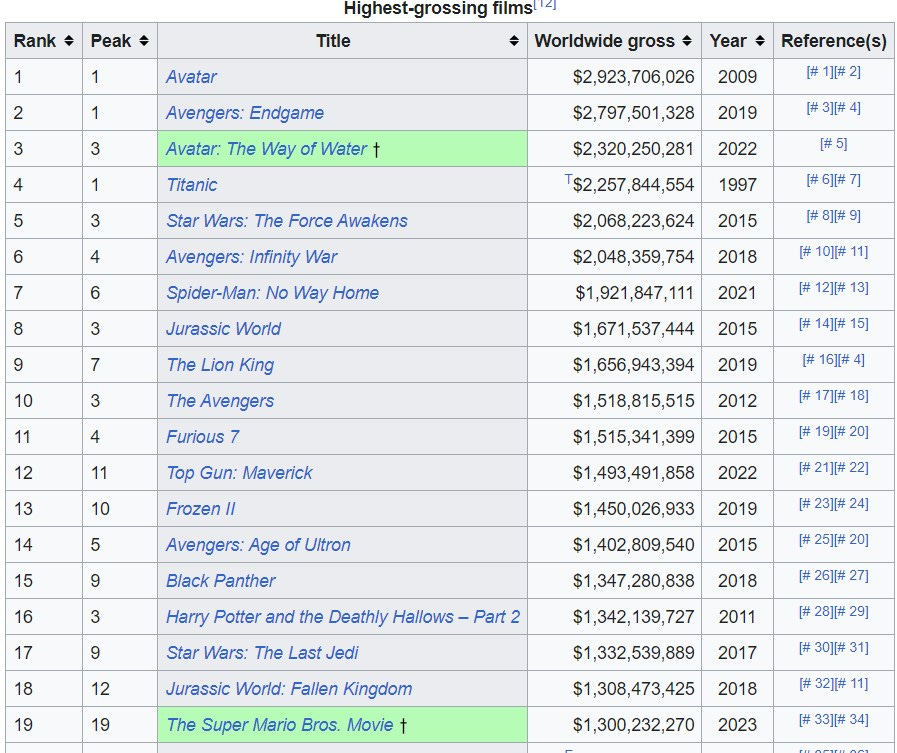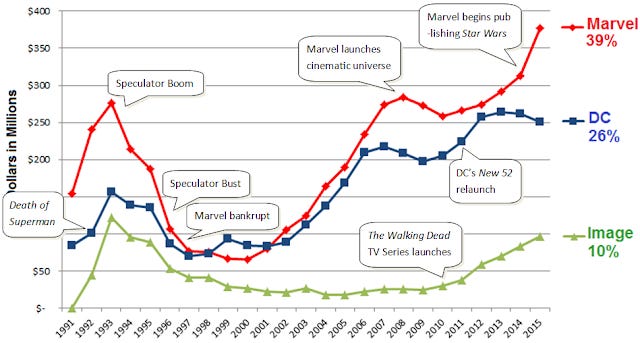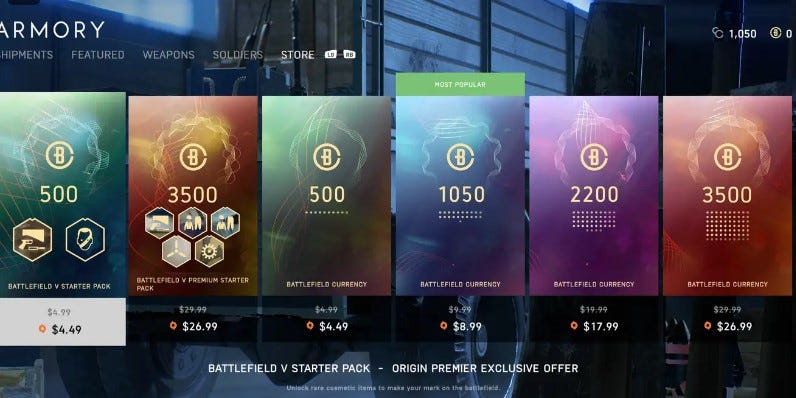NFTs in Videogaming, A Gamers' Perspective
NFTs have well and truly become a part of the Crypto ecosystem. However what does their foray into the games industry actually mean
Videogames and NFTs. Two things your parents don’t understand and will probably call you a moron for spending time on. Both are digital productions, culminations of 1000s hours of work. Red Dead Redemption 2, an open-world Western shooter, is considered a modern masterpiece rivaling some of the greatest films produced this decade.
The developers at Rockstar, the studio behind RDR2, often pulled in 100-hour weeks and frequently slept in the office to get the game made. That game has sold around 50 million units Globally, generating 1.32B US dollars.
For reference, if Red Dead Redemption 2 was a movie, it would be one of the top 20 highest-grossing movies ever.
But we all know video games are already a well-established form of entertainment, and all the shrieking about video game violence won’t change anything. The main question is, what does this have to do with NFTs?
DISCLAIMER: This is NOT an article about NFTs and their merits. I have no dog in the fight and don’t presume to fully understand them as they are a bleeding edge asset class. I DO, however, understand video games and the kinds of trends that gamers spit on. Sometimes knowing what not to invest in is half the battle.
NFTs and Video games. A mix of ambition or greed?
NFTs can really be anything digital such as drawings, music, audio clips, photos, etc. A digital rendition that confers ownership of that digital asset. It makes sense that there would eventually become an unholy alliance between the two digital mediums and the eventual crossover.
The most common examples of NFTs in video games are things you probably already know. He still hasn't refunded everyone for Axie Infinity, League of Kingdoms Arena, or that Logan Paul game. I’m not passing judgment on any of these projects, but how’s your NFT gaming play-to-earn portfolio going?
What can comic books teach us?
I won’t bombard you with statistics because it’s boring, and history has enough lessons learned in blood, SOO let me take you back a few decades to the 90s. I’m assuming you were a kid who just got home and started polishing your Pogs collection(were Pogs still a thing by then?). You watched an after-school special on elephant migration, played some Doom or Thief, and ripped open a fresh new comic authored by your other two parents, DC and Marvel. (Ah, times were simpler).
Before comic book movies were a billion-dollar industry, they were something you got picked on for reading. A place where you could take part in an adventure from the comfort of your home. It was JOY.
The Keyword here….JOY.
You didn’t buy the comic because you wanted to flip it for some WETH. You didn’t keep a live tracker on Opensea for what trend was popping up on Twitter so you could buy in early. YOU BOUGHT IT BECAUSE YOU ENJOYED IT. Comics, like movies and games, are entertainment mediums, first and foremost.
The Road to Disaster
In 1991, the NY Times published an article entitled “Holy Record Breaker!” which outlined the sale of Detective Comics #27 (the first appearance of Batman) and Action Comics #1 (the first appearance of Superman) at auction for $US55,000 and $US82,500 respectively (roughly the equivalent of $US103,608 and $US155,412 today). Unfortunately, spiderman did not get a mention.
The cultural appeal surrounding comics had changed. They were no longer just books; they were commodities. They became a way to put your kids through university/college(for the Americans here).
It didn't stop there, publishers soon caught on and started issuing Variant editions, with holofoil covers, black and white covers, and special editions that weren’t that special. They restricted supply and slapped them with the “collectible” logo. Starting to see the similarities... These crashes are almost ALWAYS amplified by poor policy and greed by the powers that be within the industry. There is no innocent party here.
The ensuing crash was intense. In 1996,
By 1996, the US sales of comic books had fallen over 60% from their peak in 1992. The industry imploded as the comics became too expensive and detached from their original purpose. Do any other sectors come to mind that have lost their way?
What about the Luxury Art market
A counter-argument is that the luxury art market has thrived and thrived. Luxury art dealers charge enormous amounts to sell precious art. Comic books may be an artistic medium but are different from the luxury Art market as that market is mostly high-end clientele where Middle Eastern royalty will gladly fork out 450m USD for a Leonardo Da Vinci painting. It is a market with low saturation and clients who have deep pockets. Art in retail form like movies, games, and comics, is made for people like you and me. Would you pay 40,000 dollars for a gold edition Spiderman comic?
How is this related to NFTs and Video games?
The same plague that crashed the comic book industry in 1996 will also come for Video games. NFTs in games are new, but scummy tactics have always tried to weasel themselves into gaming throughout history.
Microtransactions are one such example. These are essentially paywalls that allow you to “unlock” in-game items and cosmetics for your character or game. They provide no additional in-game value or additional edge. They are cosmetic. NFTs will take this one step further. If you can buy, adopt, or license a character, sword, or item, then you essentially break a sacred rule in video gaming. BEST MAN WINS. A core aspect of social gaming like Call of Duty, Battlefield, Assassins Creed, and other Triple-A games is that regardless of the in-game items, battle passes, or other things you buy, your skill and sharpness ultimately wins the day. Nothing more, nothing less.
But you may be arguing most in-game NFTs don’t provide an edge. Axie Infinity didn’t. Well, ask yourself whether you play Axie Infinity to have FUN or grind an account you can sell. Will you ever outsource your Call of Duty playtime to an impoverished family in the Philippines so they can grind your account levels? The commodification of gaming and the enjoyment of said games are fundamental points of contention, hence also prove for a poor business model.
Conclusion
Ultimately, this article isn’t to dissuade NFT investors and traders. It is a reality check from someone who plays games, like the comic book crash in 1996 and the Tulip Bulb market crash a few hundred years prior. It is a fundamental reality that entertainment mediums and the commodification of their in-game content fundamentally break the experience. You won’t pay for additional Audio NFTs to make a cinema experience better. You won’t buy a digital NFT of an in-game item as the price of admission into the cinema or the price paid to buy the game is enough. If you want to delve into NFTs, by all means, do so. HOWEVER, be very cautious of snake oil salesmen saying their token/company/NFT will fundamentally change how you play games. It most likely will not.
Learn from the past; Everyone has tried to commodify art; most have failed. Watch your step.
Thank you for reading our work and supporting our message🗡️









